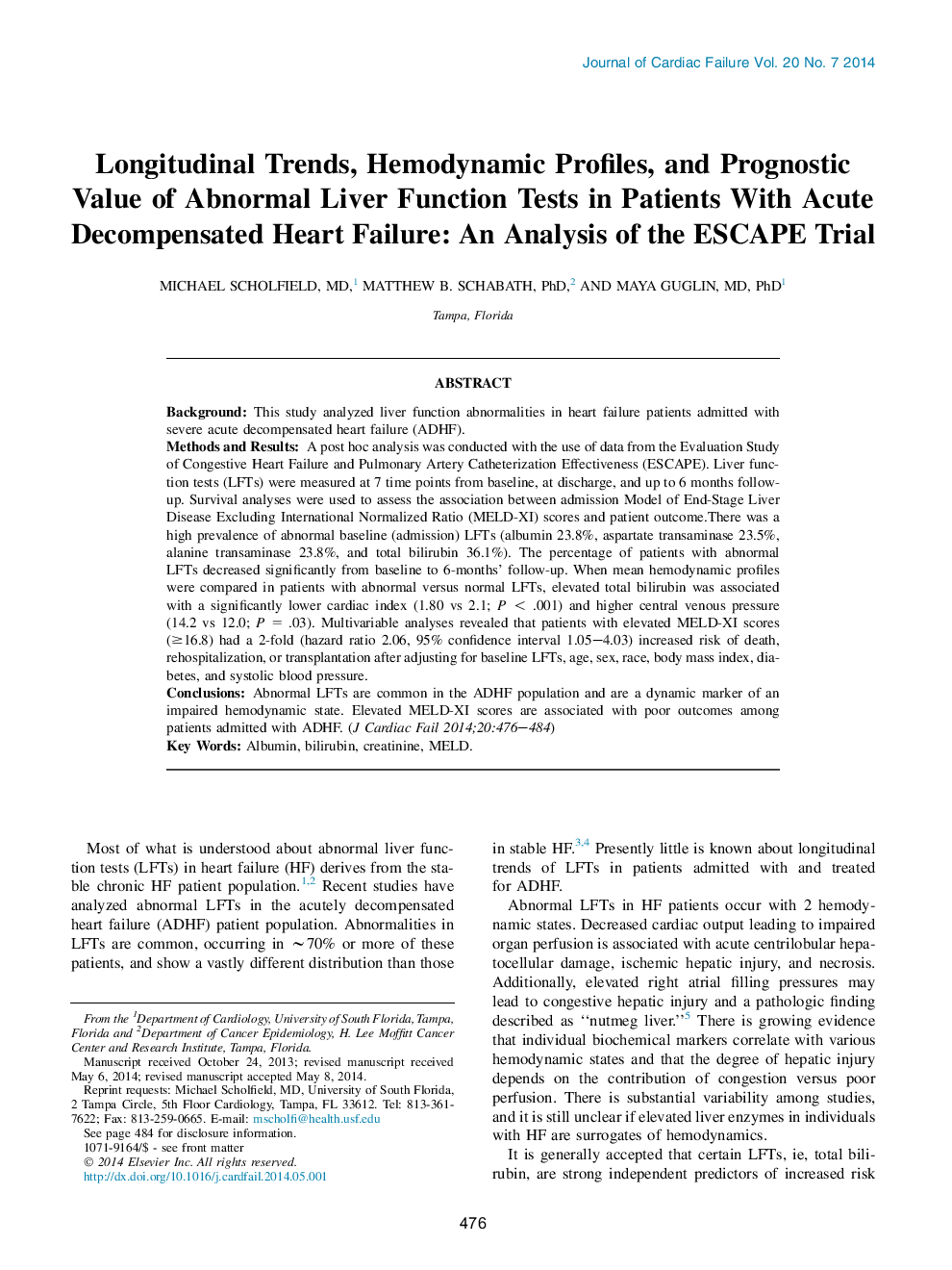| Article ID | Journal | Published Year | Pages | File Type |
|---|---|---|---|---|
| 5983677 | Journal of Cardiac Failure | 2014 | 9 Pages |
BackgroundThis study analyzed liver function abnormalities in heart failure patients admitted with severe acute decompensated heart failure (ADHF).Methods and ResultsA post hoc analysis was conducted with the use of data from the Evaluation Study of Congestive Heart Failure and Pulmonary Artery Catheterization Effectiveness (ESCAPE). Liver function tests (LFTs) were measured at 7 time points from baseline, at discharge, and up to 6 months follow-up. Survival analyses were used to assess the association between admission Model of End-Stage Liver Disease Excluding International Normalized Ratio (MELD-XI) scores and patient outcome.There was a high prevalence of abnormal baseline (admission) LFTs (albumin 23.8%, aspartate transaminase 23.5%, alanine transaminase 23.8%, and total bilirubin 36.1%). The percentage of patients with abnormal LFTs decreased significantly from baseline to 6-months' follow-up. When mean hemodynamic profiles were compared in patients with abnormal versus normal LFTs, elevated total bilirubin was associated with a significantly lower cardiac index (1.80 vs 2.1; P < .001) and higher central venous pressure (14.2 vs 12.0; P = .03). Multivariable analyses revealed that patients with elevated MELD-XI scores (â¥16.8) had a 2-fold (hazard ratio 2.06, 95% confidence interval 1.05-4.03) increased risk of death, rehospitalization, or transplantation after adjusting for baseline LFTs, age, sex, race, body mass index, diabetes, and systolic blood pressure.ConclusionsAbnormal LFTs are common in the ADHF population and are a dynamic marker of an impaired hemodynamic state. Elevated MELD-XI scores are associated with poor outcomes among patients admitted with ADHF.
